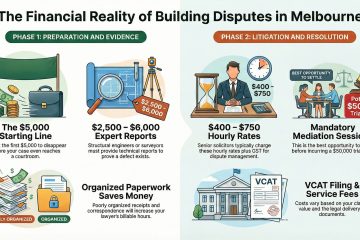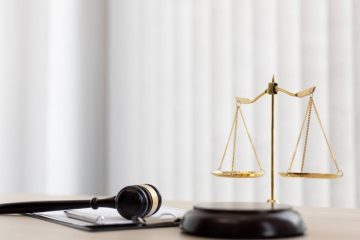The Attorney General serves as both law enforcement officer and legal advisor for the United States. When necessary, this individual appears before federal courts for litigation concerning congressionally passed laws; defends their constitutionality in court proceedings; counsel state agencies/boards when needed; and represents these bodies when needed in state agencies/boards meetings.
The regional offices of the Attorney General investigate and prosecute issues that affect all New Yorkers, such as consumer fraud, protecting tenants, conserving natural resources, helping victims of identity theft and fighting Medicaid fraud.
Office Address
The Attorney General’s Office serves as Colorado’s chief law enforcement and legal office. Its attorneys and staff prosecute cases including child exploitation, elder abuse, Medicaid fraud, criminal appeals and complex white-collar crimes. Furthermore, its defense against lawsuits helps crime victims with family support services as well as enforce consumer protection laws. Furthermore, this office collaborates closely with 22 District Attorneys as well as local, state and federal law enforcement agencies while being the only State agency authorized to initiate civil or criminal actions on behalf of public interests.
The Office is divided into seven law divisions that specialize in specific areas of State law such as antitrust, securities, consumer protection and environmental. Other specialized units within the Office include the State Psychiatric Examiner Office, Child Support Division and Independent Investigations Unit. Furthermore, regional offices within the office assist with providing essential defensive, regulatory and affirmative justice functions throughout the State.
For example, the Attorney General’s Office offers various services.
Investigates and litigates complex cases, such as prosecution of major gangs and organized crime enterprises; investigates claims of Medicaid system fraud; monitor residential juvenile facilities; enforce antitrust laws; defend the State against lawsuits brought by citizens; provide legal advice and representation to Governor, executive branch agencies, boards & commissions and institutions of higher education as well as reviewing proposed legislation. Furthermore, The Office reviews & approves administrative rules adopted by State officers or agencies & provides informal mediation services for consumer disputes.
The Attorney General’s Office cannot offer legal advice directly to individuals or participate in individual citizen disputes; however, they do provide residents who need help with specific issues with accessing legal resources for assistance. Furthermore, free training sessions on topics like how to file appeals with courts and basic financial literacy are offered by this office; for more information visit their website.
Directions
The Attorney General serves as Chief Law Enforcement Officer of Florida. They oversee the Department of Justice, manage civil litigation for their office, and serve on several Cabinet committees to address state lands, investments and rules governing insurance and financial regulations.
The Office of the Attorney General oversees various bureaus that investigate and prosecute criminal activities including child pornography, fraud against taxpayers and other organized crime, identity theft, environmental crimes and corruption against public officials. Furthermore, this Office offers programs to assist crime victims. Furthermore, when criminal convictions are challenged in civil litigation by criminals appealing their sentences, this office serves as their advocate in representing their rights.
The Attorney General and their staff do not offer legal advice to individual citizens nor serve as mediators in private disputes. For any legal inquiries or issues you have, please visit our Component Contact Information page in order to locate a component within the AG that handles them best.
Parking
There is plenty of parking near the Attorney General’s Office – both street parking is free but space can be limited; therefore please park in marked spots only as unauthorzie parking will result in a citation and potential towing charges.
Parking issues at the Attorney General’s Office in Burlington provide an example of how state government can become mired in controversy even for seemingly small matters, beginning with an initial request for parking space at Costello Courthouse.
On September 19, Assistant Attorneys General Rose Kennedy and Sophie Stratton, who were representing the government in the meat-cleaver murder case, asked Domenica Padula of state facilities staff for four parking spots in the basement of 32 Cherry Street building due to ongoing trials and workload demands. Padula agreed with Building and General Services Safety Director William McSalis and allowed temporary spots within this section containing 38 marked spots used by courts, State’s Attorney office and corrections departments – per diagram provided by state.
George’s Office sent Padula and McSalis an email the following day warning them that it will begin to tow cars that weren’t parked in their respective spots, with photos, license plate numbers, and DMV contact info in an effort to identify its owner.
But it was too late; the car in question belonged to former State’s Attorney Maura Donovan who had been assigned this space by former Attorney General Sarah George; she had since left prosecutor’s office and taken up residence in Vermont’s AG’s Office.
In January, the Attorney General filed suit against Parking Enforcement Systems and Tom O’Toole alleging violations of the Consumer Protection Act. Parking Enforcement Systems provides parking lot monitoring services for property owners while making money off tickets issued against vehicles not parking in designated spaces. According to the AG’s complaint, however, this company misrepresented its authority for issuing tickets while offering an unlawful appeal process for those disputing tickets issued against their vehicles.
Meeting Rooms
Our office features several meeting rooms that can be reserved by groups, and can be reached either via phone or email to schedule a time and date for a gathering.
The attorney general serves as counsel to all boards and agencies within state government, provides legal opinions upon request from the Governor or heads of departments, sits as an ex officio member on various state committees and commissions, prosecutes cases on behalf of the State, defends legal challenges made to state laws by parties including government employees or agencies and represents certain interests at federal level. His/Her office also conducts public corruption investigations – for instance the investigation against former Harrisburg Mayor Stephen Reed who purchased thousands of historical artifacts with millions from taxpayer money.
As chief legal officers for their states, commonwealths, territories and protectorates in America, attorneys general are charged with overseeing issues including consumer protection, antitrust enforcement, criminal justice reform and protecting vulnerable populations. NAAG serves as a nonpartisan national forum that offers collaboration, insight and expertise for America’s attorneys general.


